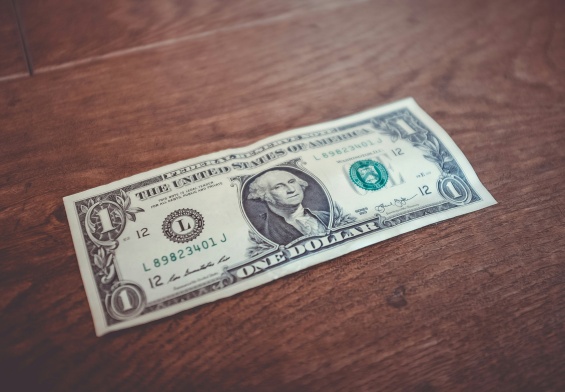Embarking on the path to financial recovery often leads individuals and businesses to consider the avenue of Chapter 7 bankruptcy. This legal process, established under federal law, offers a beacon of hope for those drowning in the sea of unsecured debt, providing a structured mechanism for making a fresh start. Tailored for debtors with minimal assets, Chapter 7 bankruptcy aims to discharge a wide array of unsecured debts, from credit card bills and personal loans to medical expenses and certain legal judgments. The complexity of this bankruptcy type necessitates the guidance of a seasoned bankruptcy attorney in NJ, whose expertise is invaluable in navigating the intricacies of the filing process and ensuring that the debtor’s legal rights are upheld every step of the way.
The decision to file for Chapter 7 bankruptcy, while offering a pathway out of financial distress, also intersects with broader legal and ethical considerations. Beyond the immediate implications for debt discharge and asset liquidation, Chapter 7 filings touch upon sensitive areas such as employment and ethics law, raising questions about the impact of bankruptcy on one’s current or future employment and the ethical responsibilities owed to creditors. These considerations underscore the importance of approaching bankruptcy with a comprehensive understanding of its potential ramifications, highlighting the role of skilled legal counsel in steering individuals through the complex landscape of federal bankruptcy law and its intersection with other legal domains.
The Intersection of Bankruptcy with Employment and Ethics Law
The implications of filing for Chapter 7 bankruptcy extend beyond the financial realm, touching upon areas of employment and ethics law. For individuals worried about the potential impact on their employment, it’s crucial to understand that federal law offers protections against employment discrimination based solely on bankruptcy filings. This intersection with employment law highlights the legal safeguards in place, ensuring that individuals seeking relief through bankruptcy do not face unjust consequences at their places of work. Furthermore, the process raises questions of ethics, especially in the handling of debts and the obligations towards creditors, underscoring the importance of navigating bankruptcy with integrity and adherence to legal and ethical standards.
Advantages of Opting for Chapter 7 Bankruptcy
Filing for Chapter 7 bankruptcy opens the door to numerous benefits, chief among them being the opportunity for a fresh start. This form of bankruptcy discharges the debtor from the chains of debt, offering relief from the relentless pursuit of debt collectors and protection against wage garnishments. It sets a foundation for financial recovery, allowing individuals to earn wages and acquire property post-bankruptcy without the looming threat of creditor claims. Notably, Chapter 7 bankruptcy stands out for its accessibility, with no minimum debt requirement and its status as one of the quickest and most cost-effective paths to debt discharge. The potential for higher interest rates post-bankruptcy exists, yet the path to reestablishing credit and qualifying for major purchases remains open and achievable in a relatively short timeframe.
Retaining Property Through Chapter 7 Bankruptcy
A common concern for many considering Chapter 7 bankruptcy revolves around the fate of their property. The law provides for the retention of essential assets such as homes and vehicles, given that payments are up-to-date and equity levels do not exceed certain thresholds. Making arrangements to adhere to payment schedules is critical in keeping these assets. Generally, individuals find that they can maintain possession of their primary residence, vehicle, and personal belongings, all while eliminating burdensome debts.
Handling Non-Exempt Assets
The role of the interim Trustee, appointed by the US Trustee’s Office, is pivotal in the Chapter 7 process, focusing on the liquidation of the debtor’s non-exempt assets to satisfy creditor claims. The trustee’s responsibilities include the sale of these assets, with the goal of maximizing returns to unsecured creditors. In situations where no assets are available for liquidation, a “no asset” report is filed, signaling the absence of distributions to unsecured creditors. Should the bankruptcy initially appear to involve asset liquidation, the trustee must issue a proof of claim to each creditor, providing a 90-day window for claims submissions, with governmental entities granted 180 days.
Conclusion: Navigating Financial Rebirth with Chapter 7 Bankruptcy
The decision to file for Chapter 7 bankruptcy is not taken lightly, representing a profound step towards regaining financial autonomy and stability. This process, while complex, offers a structured approach to wiping the slate clean, allowing individuals and businesses to move forward unencumbered by insurmountable debt. The guidance of a bankruptcy attorney is indispensable in this journey, ensuring that the filing is conducted with due diligence to both legal and ethical considerations.
Moreover, the interplay between bankruptcy, employment, and ethics law provides a comprehensive framework within which debtors can seek relief without fear of undue discrimination or ethical compromise. As individuals emerge from the shadow of debt, Chapter 7 bankruptcy stands as a testament to the legal system’s capacity to provide second chances, underscoring the possibility of a brighter, more stable financial future.




